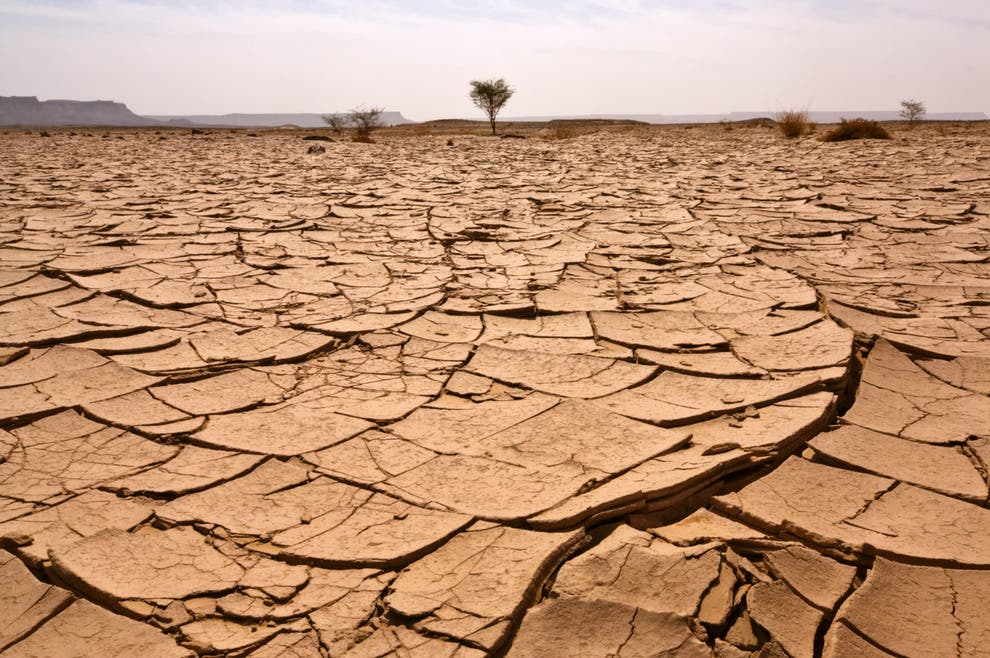11 Dec 2024

Tired Earth
By The Editorial Board

This week the UK pledged to cut its emissions by 78 per cent by 2035. Crucially, it included the polluting industries of shipping and aviation in its sixth carbon budget. But setting targets is much easier than meeting them and currently the UK is not on track to meet its fifth carbon budget.
While some progress is being made at home to usher in a green, clean future for Britain, those of us overseas are keen to see the hosts of this year’s Cop26 climate summit using their international leadership role to encourage this clean energy revolution elsewhere too.
For too long the UK has funded, and profited from, the expansion of fossil fuels in my continent of Africa. While it was reaping the benefits of decarbonising its own energy system it was shackling poorer nations with dirty fossil fuel infrastructure, which the world must now move away from.
In order to help undo this legacy, Boris Johnson should embrace his ‘Global Britain’ mantra and ensure it becomes the leading force in the spread of clean energy around the world. Africa has an abundance of renewable energy potential; from the equatorial sunshine to the winds that whip across our plains. Yet, the number of people lacking access to electricity is set to rise in sub-Saharan Africa.
Africans have done the least to cause the climate crisis and yet are suffering the most from it. In fact, we make up 17 per cent of the world’s population but have contributed to just 4 per cent of global emissions between 1990 and 2017. All we’re asking for now is help from rich polluters so we can leapfrog the dirty development path and harness clean energy.
his week the UK pledged to cut its emissions by 78 per cent by 2035. Crucially, it included the polluting industries of shipping and aviation in its sixth carbon budget. But setting targets is much easier than meeting them and currently the UK is not on track to meet its fifth carbon budget.
While some progress is being made at home to usher in a green, clean future for Britain, those of us overseas are keen to see the hosts of this year’s Cop26 climate summit using their international leadership role to encourage this clean energy revolution elsewhere too.
For too long the UK has funded, and profited from, the expansion of fossil fuels in my continent of Africa. While it was reaping the benefits of decarbonising its own energy system it was shackling poorer nations with dirty fossil fuel infrastructure, which the world must now move away from.
In order to help undo this legacy, Boris Johnson should embrace his ‘Global Britain’ mantra and ensure it becomes the leading force in the spread of clean energy around the world. Africa has an abundance of renewable energy potential; from the equatorial sunshine to the winds that whip across our plains. Yet, the number of people lacking access to electricity is set to rise in sub-Saharan Africa.
Africans have done the least to cause the climate crisis and yet are suffering the most from it. In fact, we make up 17 per cent of the world’s population but have contributed to just 4 per cent of global emissions between 1990 and 2017. All we’re asking for now is help from rich polluters so we can leapfrog the dirty development path and harness clean energy.
There is also a geopolitical advantage for ‘Global Britain’ to engage with African countries on their clean energy ambitions. In Western capitals, there is much consternation about China’s global influence, including its Belt and Road Initiative, which has seen it gaining friends and building major infrastructure projects across Africa. With Joe Biden in the White House and Cop26 host Boris Johnson in Number 10, there is scope for a new Anglo-American force for good that, if working alongside African countries, could help bring clean energy to some of the poorest people on earth while allowing them to truly achieve greater climate ambitions, something which would benefit us all.
At the end of Cop26 in Glasgow this year Boris Johnson will pass the torch to an African country, where Cop27 will take place. This would be the perfect time to forge a new partnership between the UK and Africa, one built not on a legacy of colonialism but of ending the scourge of fossil fuels and liberating a continent with clean power.
Mohamed Adow is the Director of Power Shift Africa, a Nairobi-based climate and energy think tank.
Source : independent.co.uk
Comment